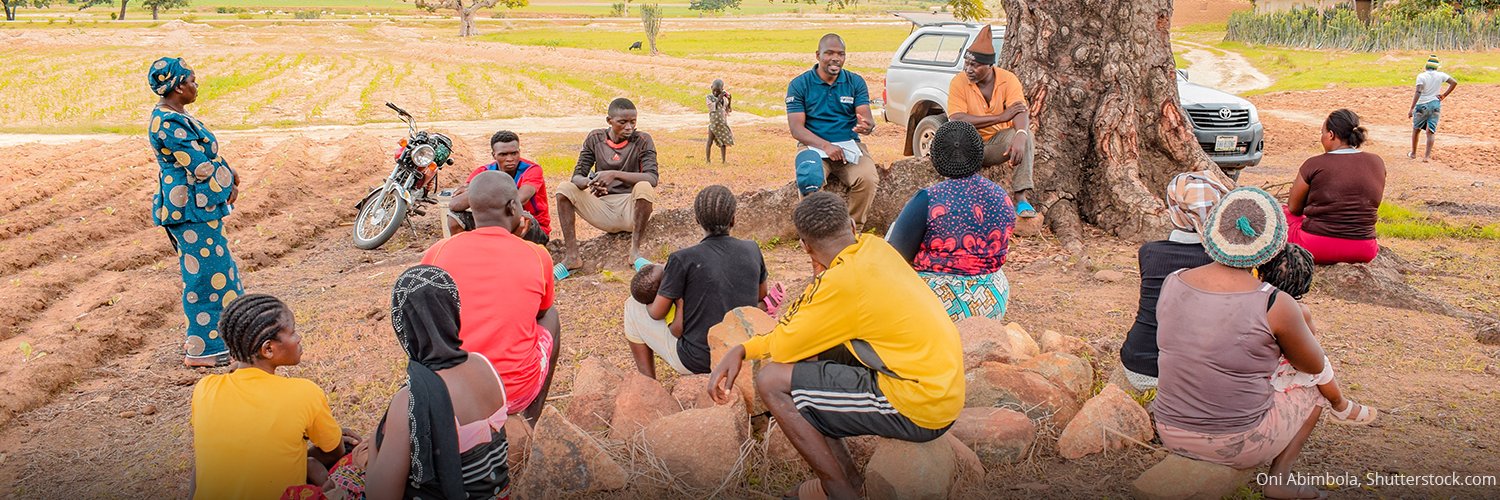
J-PAL
@JPAL
We are a global poverty research center @MIT that conducts randomized evaluations and builds partnerships to bring innovative, effective programs to scale.
In a new op-ed Esther Duflo reminds us: “'Development aid is not a waste of public money.” 📖 Read via @lemondefr: lemonde.fr/en/opinion/art…

How can humanitarian orgs ⬆️ impact when funding is ⬇️? With 300m+ ppl in urgent need of aid, emerging evidence can pinpoint promising solutions & guide investments to help save lives. 📊 New Evidence Effect blog shows what works & where we have more to learn.…

The seventh Evidence Effect installment is here: Humanitarian assistance. Explore how evidence can strengthen crisis response 👇 💰 Give cash in crises ⚠️ Act before disaster strikes 🧠 Shift bias through perspective-taking 🔗 povertyactionlab.org/evidence-effec…


An evaluation in #Rwanda by Clare Leaver, @OwenOzier, Pieter Serneels, Andrew Zeiltlin, showed that pay-for-performance contracts for public school teachers improved teacher effort and student learning. Read our summary here: povertyactionlab.org/evaluation/imp…

💧Can delivering treated water directly to homes improve safe water use in rural India? @AnantSudarshan @fburling @amirjina evaluate three models—free delivery, subsidized pricing, and exchangeable entitlements—to study household demand and program design. 🔗…

💼 What drives worker performance—bonuses 💰 or oversight 🕵️? New @nberpubs paper in the 🇨🇳 auto sector finds— • Bonuses ↑ hours but not performance • Oversight ↑ performance but slightly ↑ employee turnover • Bonuses ↓ turnover Authored by J-PAL affiliate Jing Cai and…

Markets matter for growth and development. But how do we ensure they work for farmers, small businesses, and job-seekers? Authors Julie Cobill, Ahmed Elsayed, and Ying Gao break down the evidence behind private sector strategies that drive inclusive impact. 🔗 The Evidence…


Policymakers need to understand the cost-effectiveness of different approaches in order to make sound decisions—but what's the best way to collect cost data in the first place? Our cost-effectiveness and education teams reflect on three key considerations: povertyactionlab.org/blog/6-30-25/s…

From ride-hailing platforms to clean tech innovation, what role does evidence play in private sector impact? Learn more in our latest Evidence Effect blog post by Julie Cobill, Ahmed Elsayed, and Ying Gao. 🔗 povertyactionlab.org/blog/7-8-25/ev…

A simple but powerful insight: free bed nets save more lives. When bed nets were distributed at no cost, uptake soared, and child mortality from malaria fell. @GiveWell and @AMFupdates have built on this evidence to shape large-scale delivery. As of 2024, AMF has distributed…
Direct cash transfers—without conditions—improved household consumption, reduced hunger, and enhanced psychological well-being in rural Kenya. @GiveDirectly has played a central role in scaling this model, reaching over 1.6 million people globally and continuing to generate…
🤝 Building stronger education systems takes collaboration. In Ghana, government, NGOs, and UNICEF are working together to scale a tailored learning approach—supported by real-time data and insights. Read about the experiences of two education practitioners putting evidence into…
Cost-effectiveness can help guide us toward the most impactful approaches, but data collection can be challenging. We're working with the @WWHGlobalEd to help education organizations incorporate cost considerations in their programming: povertyactionlab.org/blog/6-30-25/s…

What happens when evidence meets enterprise? The latest Evidence Effect blog by Julie Cobill, Ahmed Elsayed, and Ying Gao explores how private sector players are leveraging research to support SMEs, better jobs, and more. 📘 povertyactionlab.org/blog/7-8-25/ev…

📖 How are educators in Ghana using data to improve learning? Our new blog spotlights two practitioners working to strengthen foundational learning—drawing on local evidence, experience, and lessons from J-PAL and UNICEF’s Learning Academy cohort. Read more:…
How can governments use data and evidence to support women experiencing violence? Mexico City’s Women’s Secretariat (SEMUJERES) partnered with @JPAL_LAC and researchers to pilot new interventions, strengthen a cash transfer program, and improve the collection and use of data.…
#SchoolingWithoutLearning is a challenge in many places around the 🌍—kids are in school, but lack basic reading and math skills. Can a more customized curriculum + teacher training help? 👫 J-PAL affiliate @alexeble and co-authors evaluated this in Guinea Bissau:…

To better support women facing gender-based violence, Mexico City’s Women’s Secretariat (SEMUJERES) partnered with @JPAL_LAC and researchers to pilot new interventions, strengthen a cash transfer program, and embed evidence into policy design and delivery. Learn more:…
📖 How are educators in Ghana using data to improve learning? Our new blog spotlights two practitioners working to strengthen foundational learning—drawing on local evidence, experience, and lessons from J-PAL and UNICEF’s Learning Academy cohort. Read more here >>…
What are steps that budget-constrained policymakers should follow to effectively make decisions based on both the evidence and practical cost considerations? We highlight three considerations here: povertyactionlab.org/blog/6-30-25/s…
